Leeroy Jenkins and Mountain Giant are finally being sent to Hearthstone's Hall of Fame, but Edwin somehow survives
The 2020 rotation sees five cards banished from Standard, including the chicken-loving charger.
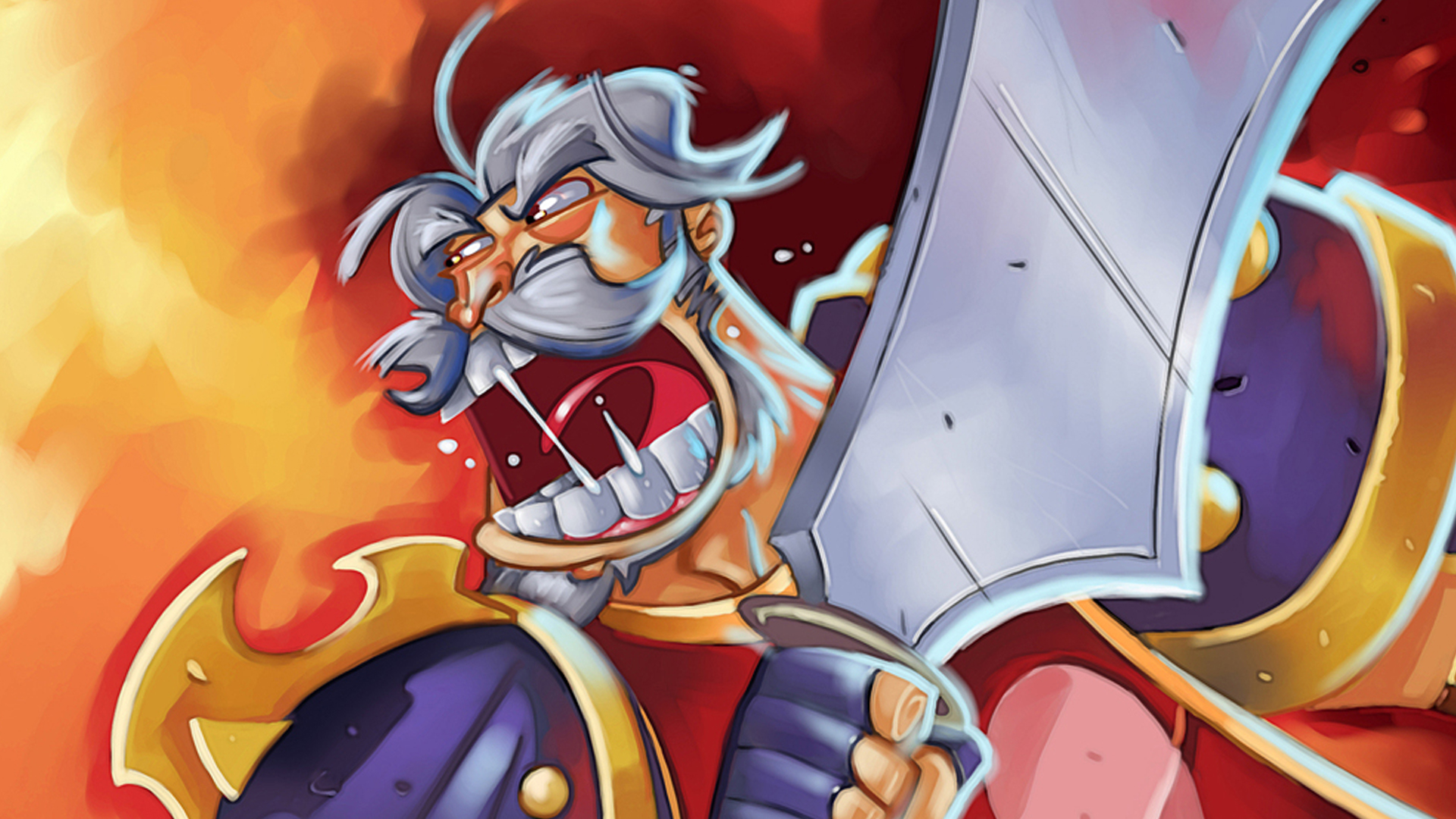
In a weird way, I think the annual Hall of Fame rotation is Hearthstone's most anticipated shake-up. Yeah it's not as splashy as a new set, (or hell, a new class), but it's the tool Blizzard uses to purge the ancient, super-powered cards that have been clogging up the meta since this game was in beta. This year's banishments include a couple of old-school control mainstays, as well as the long overdue ousting of Sir Leeroy of Jenkins. Once the cards rotate out alongside the launch of the Ashes of Outland expansion in April, the only place you'll hear that "Leeeeeeeeeeeroy Jenkins!" Battlecry will be in Wild mode. And your nightmares.
Honestly, what's most surprising about this rotation are the cards that somehow missed the cut. Edwin VanCleef stays in Standard for another year, which means we will all continue to alt-F4 at the sight of a turn four 16/16. At a recent event to preview the coming year of content, senior game designer Dean "Iksar" Ayala told us that the team is more than aware of the feedback around Edwin, and it wasn't a case of "if" but "when" he's sent to the Hall of Fame. The sticking point this time around seems to be that the team didn't have a replacement ready to go for Rogue mains. Meanwhile, Malygos is also sticking around, as is Alexstrasza, so certain wombo-combos are going to be viable throughout 2020. Here's the full list of Hall of Fame additions, starting with the big boy himself.
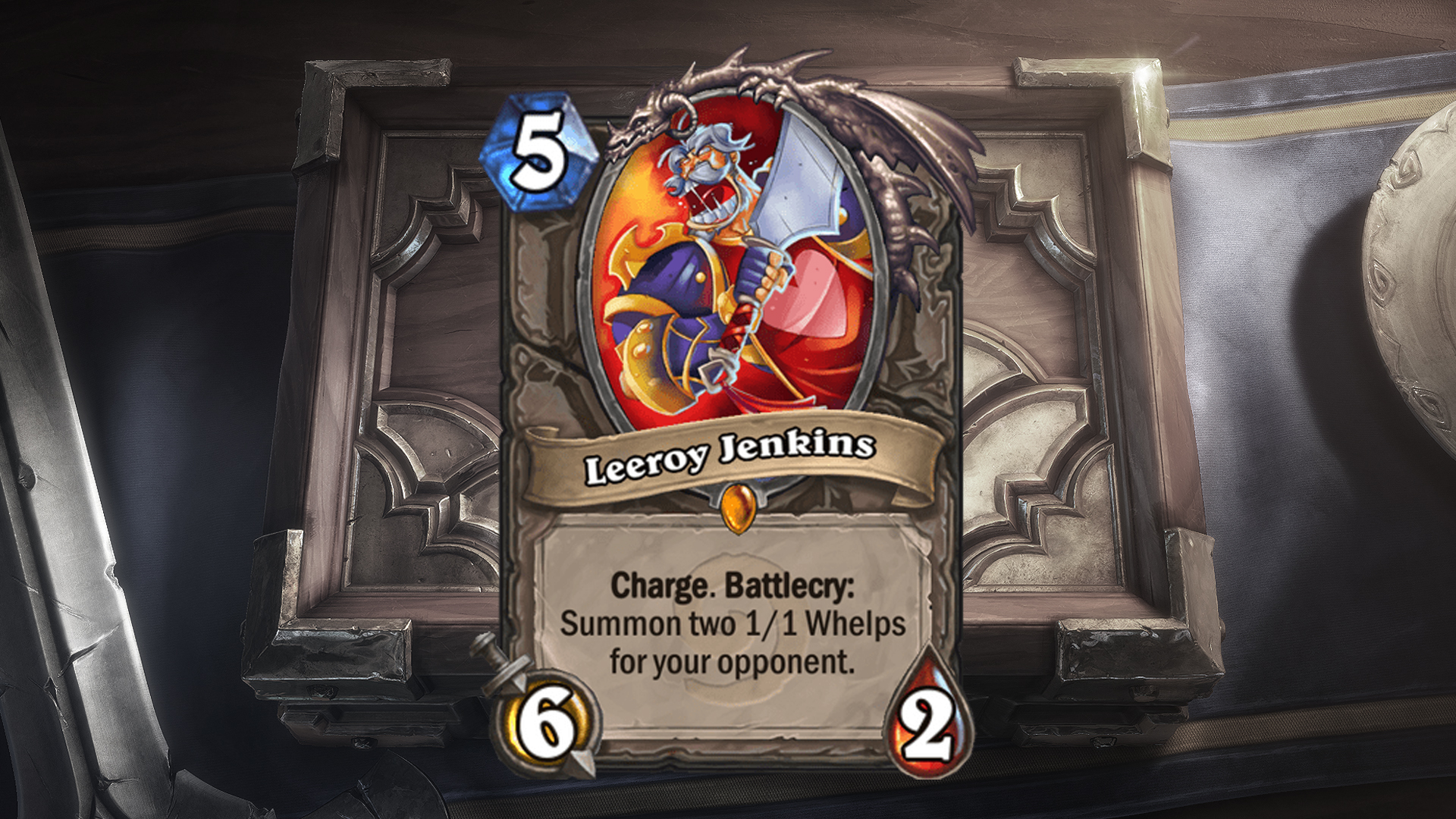
Leeroy Jenkins
This is a huge deal. Leeroy is the charge minion in Hearthstone (and also just about the only one that hasn't been removed or nerfed into unplayability). We've been taking his six damage to the face since 2013, and finally, after already surviving a change to 5 Mana, Jenkins is making his way out of Standard. I hope he brought chicken.
It's hard to overstate how much of an effect Leeory has had on Hearthstone's meta during his time in the limelight. The card has seen play in nearly every era of Hearthstone, and remains a mainstay in most aggressive decks. We've all been at 8 health, against an out-of-gas Hunter, only for them to top-deck Leeroy plus Hero Power for an infuriating loss.
Blizzard has methodically obliterated most of Hearthstone's original suite of powerful charge creatures, and after Leeroy makes his exodus, the only card of comparative impact will be Reckless Rocketeer —a 6-Mana 5/2. That's a pretty gnarly drop off.
It's funny to look back at the original sets and bear witness to the few Charge minions that are left. You've got old legendaries like Grommash Hellscream and Al'Akir the Windlord, as well as trash tier commons like Stonetusk Boar and Bluegill Warrior. At this point it feels like Blizzard is going to be extremely cautious about printing new cards with Charge, particularly cheap ones. (Though it should be noted that among the Demon Hunter cards is a new Legendary which has Charge and is the first minion to ignore Taunt.) Functionally, Leeroy's rotation means that some tempo decks on ladder will need to learn how to win with the minions they already have on board. That's how Blizzard wants us to play Hearthstone, and Team 5 will keep banishing cards into the Phantom Zone until we abide by it.
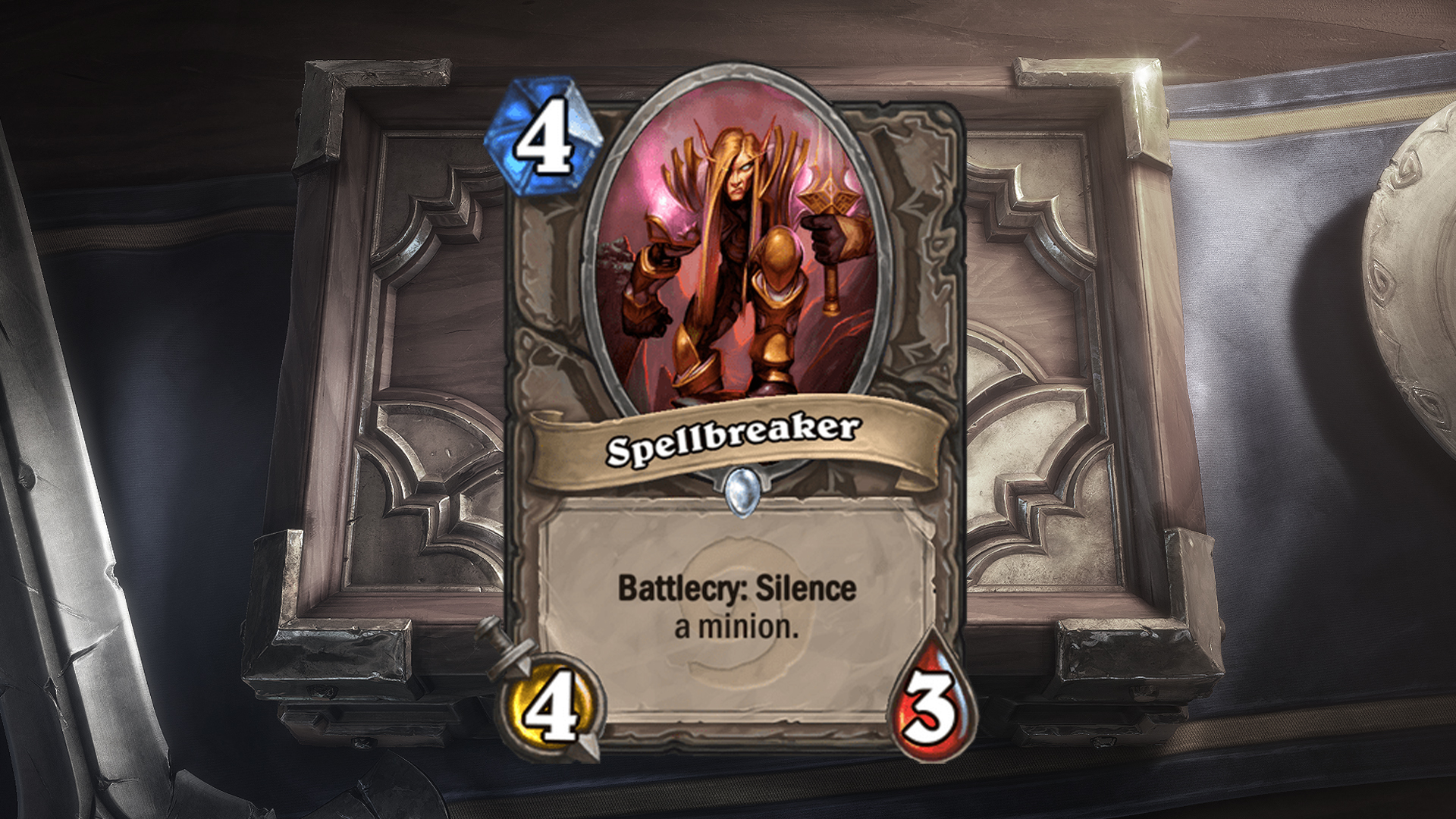
Spellbreaker
Speaking of keywords that Blizzard regrets, the company continues its campaign against neutral Silence cards by removing Spellbreaker from Standard. Though his stats are underwhelming—nobody wants to play a 4-Mana 4/3—the ability to remove Deathrattle effects from more powerful (and more fun) minions meant that this Blood Elf was a mainstay 'tech' card in many decks. "That's a nice gigantic SN1P-SN4P you've got there, be a shame if something happened to it." You get the idea.
Keep up to date with the most important stories and the best deals, as picked by the PC Gamer team.
At the preview event last month, Blizzard floated the idea of printing even fewer Silence effects. In the future, it's likely that any new Silence cards will be restricted to specific classes. (Again, Demon Hunter gets a cool Silence that's tied to the new Outcast mechanic.) We already got a taste of that thinking with Priest's Plague of Death, which represents the single most powerful mass-removal spell in the entire game. So I'm processing Spellbreaker's rotation more as a recalibration, rather than an outright moratorium on Silence as a whole. Any metagame that heavily features a bland neutral common isn't healthy.
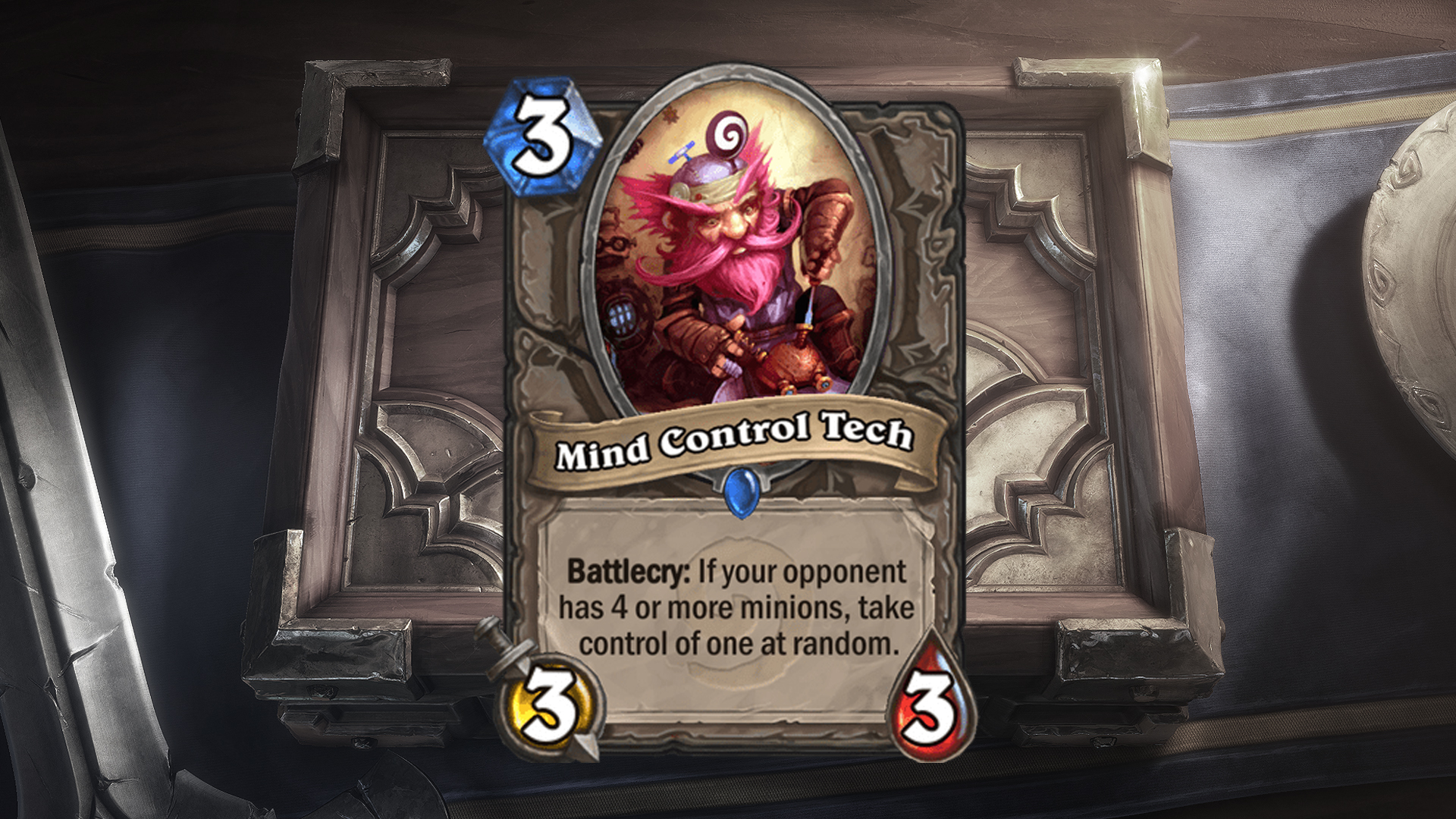
Mind Control Tech
Fun fact: Mind Control Tech was already kinda Hall of Famed back in 2018. Blizzard removed the card from the arena draft pool, because of the massive swing it could generate when one player dropped it on a crowded board. Now, the reckoning for one of the game's most venerable anti-aggro tools has come to Standard.
Like Spellbreaker, Mind Control Tech is another meta-dependent 'tech' card. Usually he'd get rotated into decklists as a one-off during a particularly Zoo-heavy metagame. After six-years-and-counting of that ubiquity, MCT's days are now numbered. Honestly, I'm going to miss this doofy little gnome. We all have our stories about a hail-mary Mind Control Tech top deck. Nothing felt better than stealing your opponent's Huffer for surprise lethal. Control-oriented Warriors and Priests will feel the pinch from MCT's absence most, and singleton decks are losing another trusty neutral from their toolkit. See you later, mental dislocator.
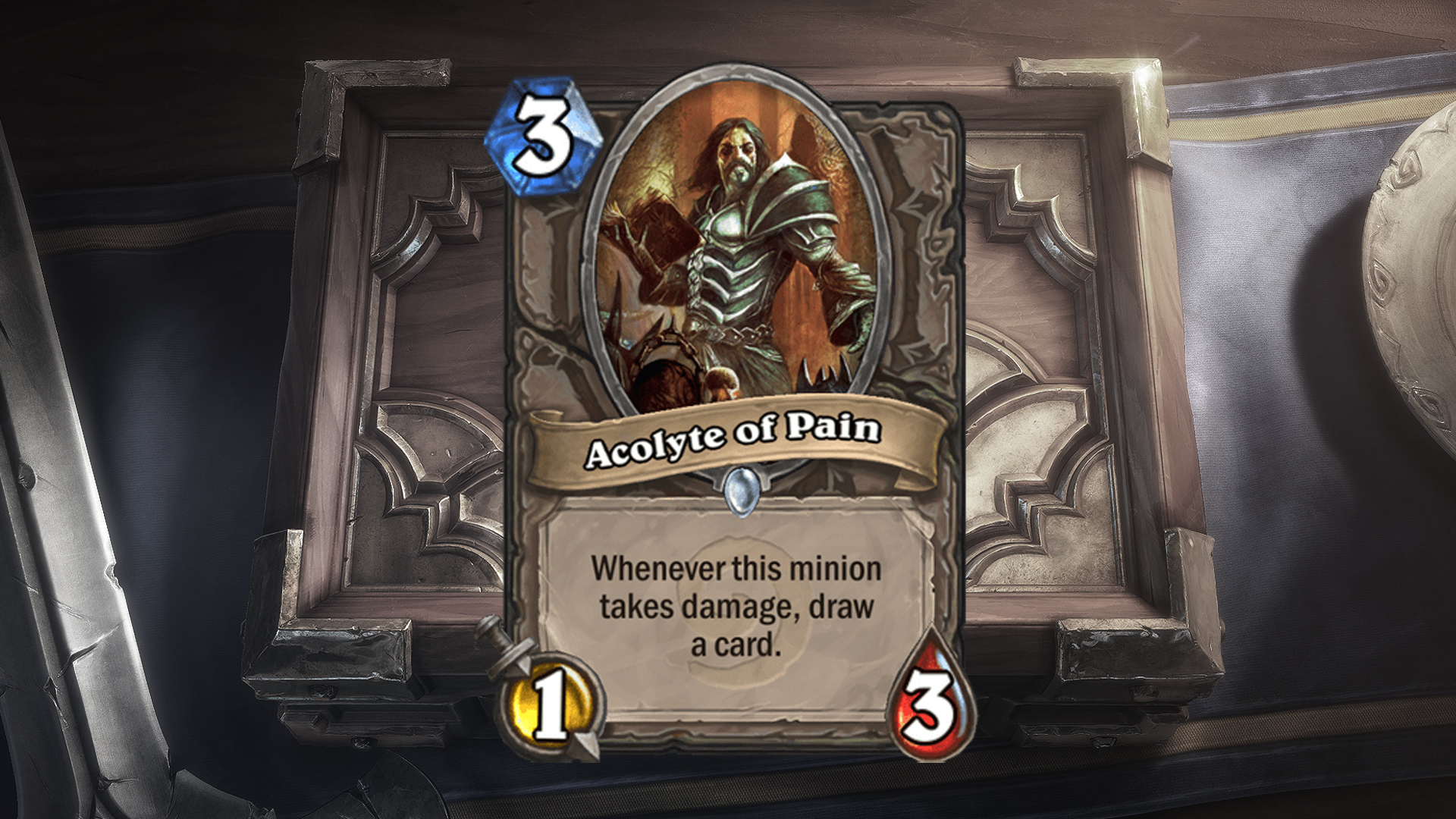
Acolyte of Pain
Acolyte of Pain is another casualty for control decks, which is funny, because past Hall of Fame rotations typically focused on either uninteractive combo enablers, (Ice Block), or supremely frustrating aggro powerhouses, (Doomguard). This year, we're sending Acolyte of Pain to the bench, even though it's a lowly 3-Mana 1/3 that's served as a draw engine for dozens of different Warrior archetypes throughout Hearthstone's lifespan. Acolyte/Whirlwind is one of the core two-card plays baked into the game's DNA, and try as Blizzard might, it never managed to print anything that removed the card from its rightful throne. Please extend my sympathies to all the value-horny control players across the globe, but it's time to move on.
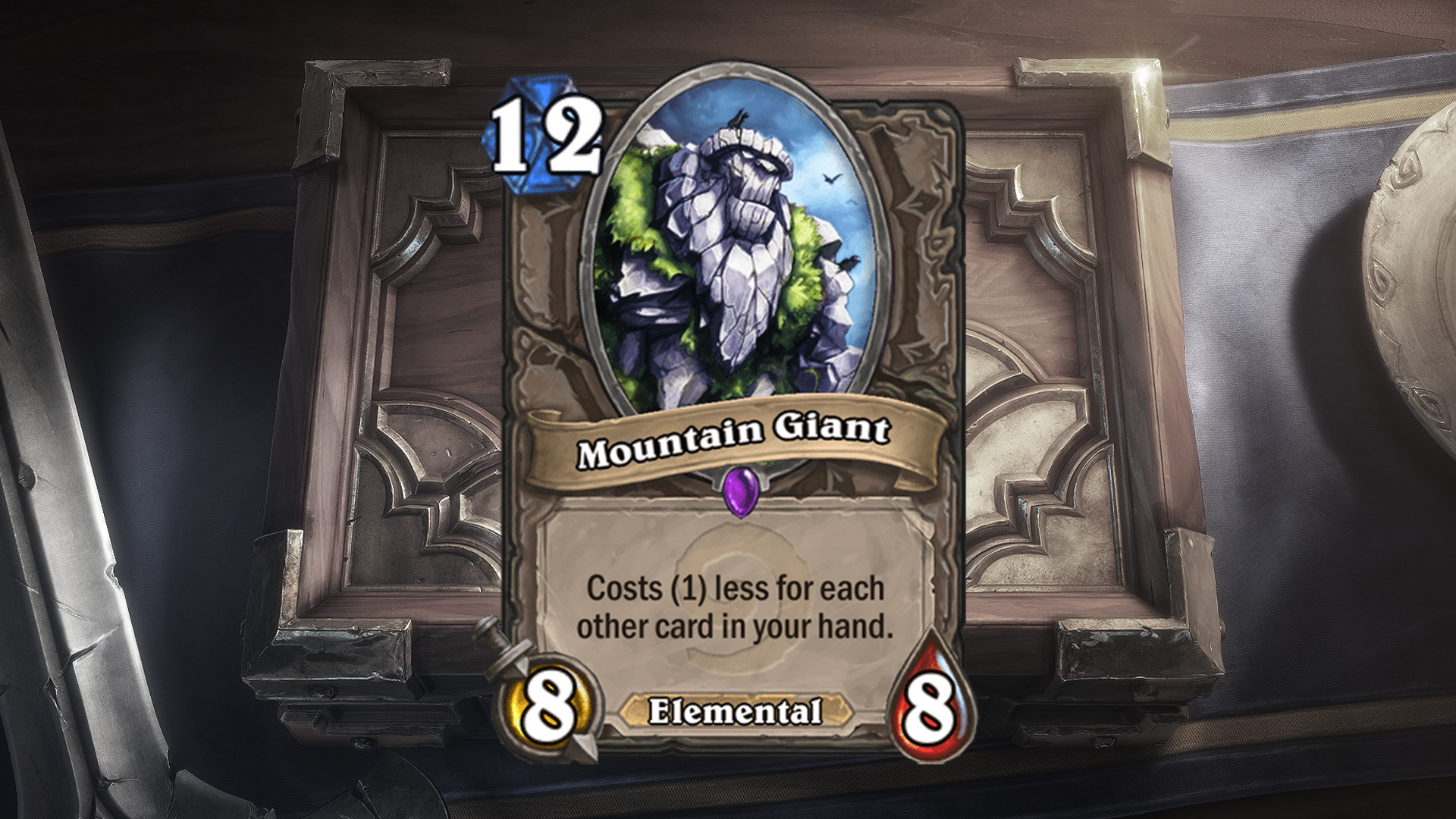
Mountain Giant
Mountain Giant has long been one of the most unfair cards in Hearthstone. A turn four 8/8, played by a crafty Warlock abusing its Hero Power, is incredibly difficult to deal with. In fact, I reckon that an early Mountain Giant is maybe the preeminent winrate-juicer in the game's history. What else would even compete? Turn one Patches?
Anyways, those days are soon to be over, and Mountain Giant will join his Molten brother in Hall of Fame purgatory. This is the toughest one to take. Handlock is one of the most honorable decks in the game's history, and a huge part of its flavor will be lost with Mountain Giant. Playing a Twilight Drake with a big butt just isn't going to give you the same buzz.
Between Acolyte of Pain, Mind Control Tech, and Mountain Giant, control decks are losing a lot of their early game tools, so hopefully Blizzard comes up with some new tools that aren't quite as ridiculous as this lovable living boulder. How about a turn four 7/7? Okay, okay, that's a terrible idea. Remember when all these cards rotate out you'll be given free dust up to the value of the maximum number of that card you could run in a deck. So if you've got any of these (particularly golden copies), hang on to them until rotation happens!

Luke Winkie is a freelance journalist and contributor to many publications, including PC Gamer, The New York Times, Gawker, Slate, and Mel Magazine. In between bouts of writing about Hearthstone, World of Warcraft and Twitch culture here on PC Gamer, Luke also publishes the newsletter On Posting. As a self-described "chronic poster," Luke has "spent hours deep-scrolling through surreptitious Likes tabs to uncover the root of intra-publication beef and broken down quote-tweet animosity like it’s Super Bowl tape." When he graduated from journalism school, he had no idea how bad it was going to get.

